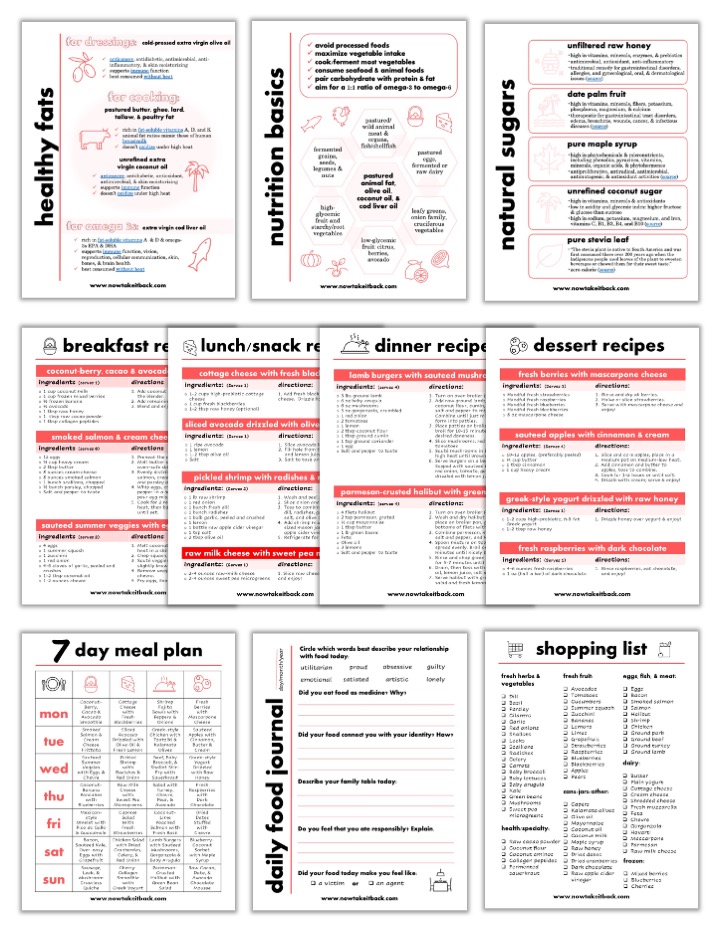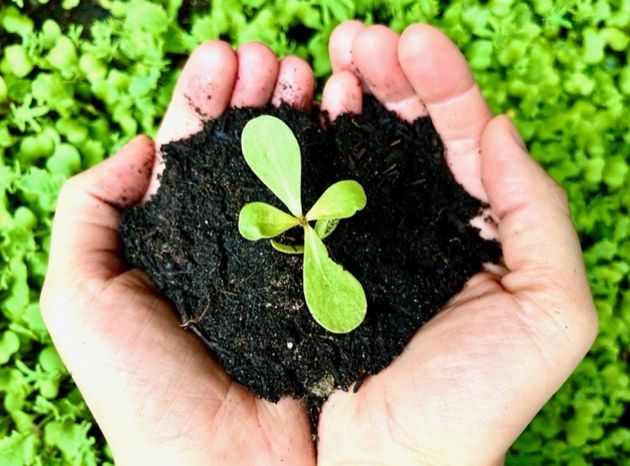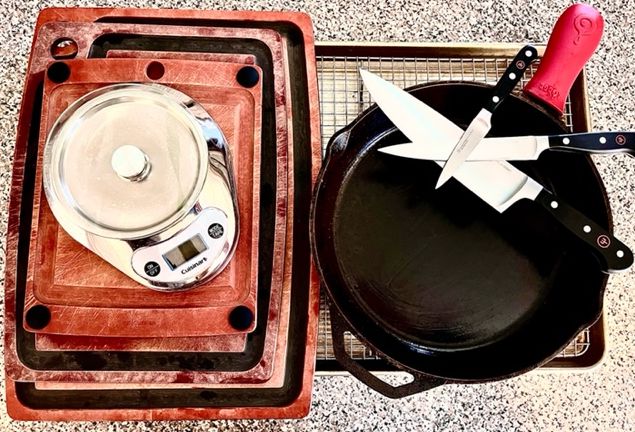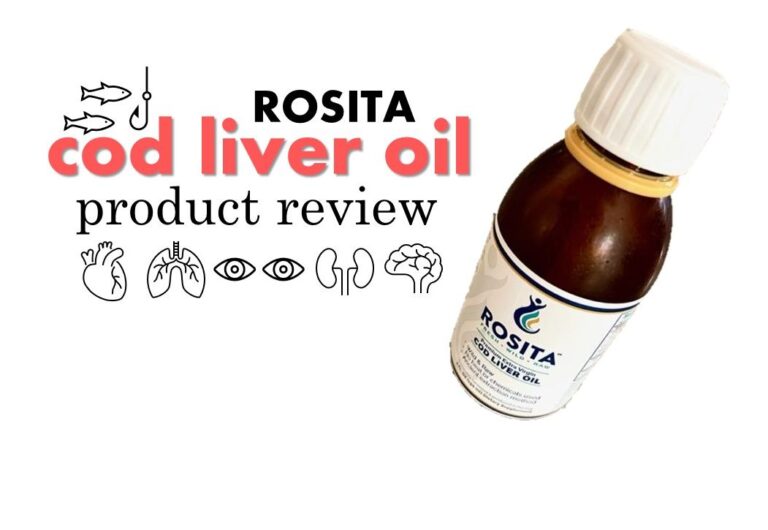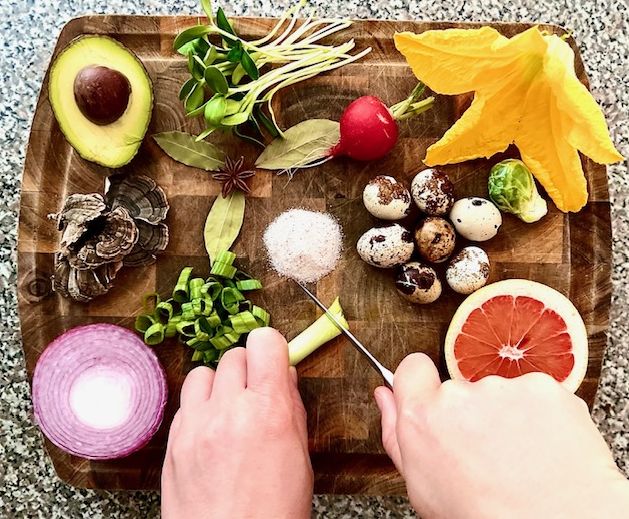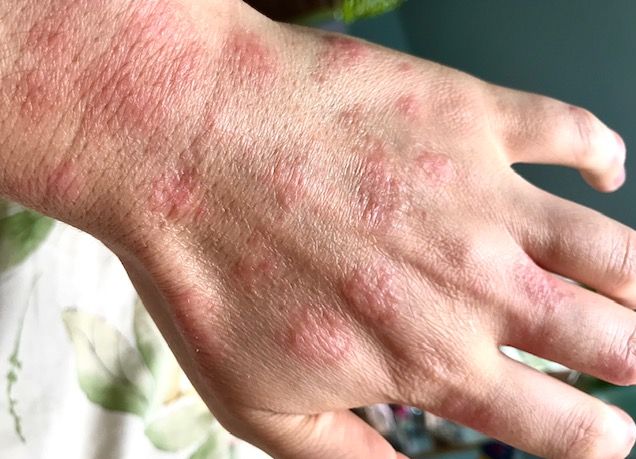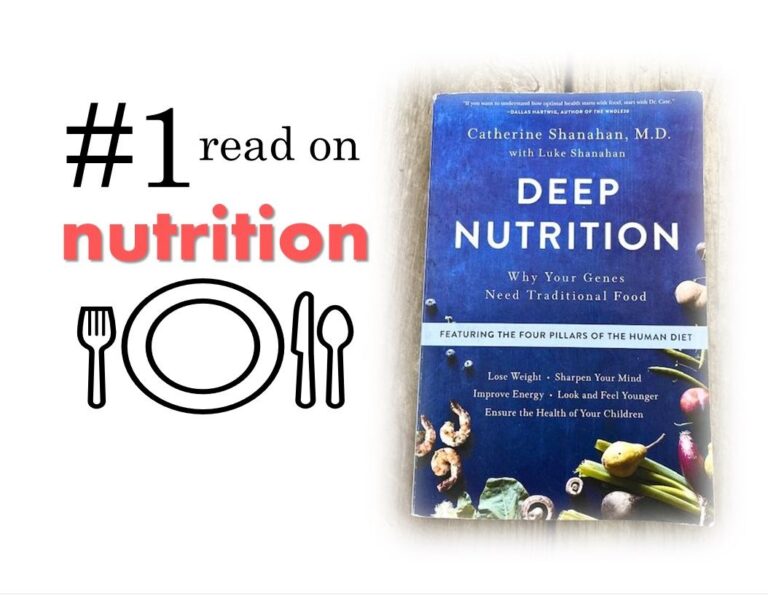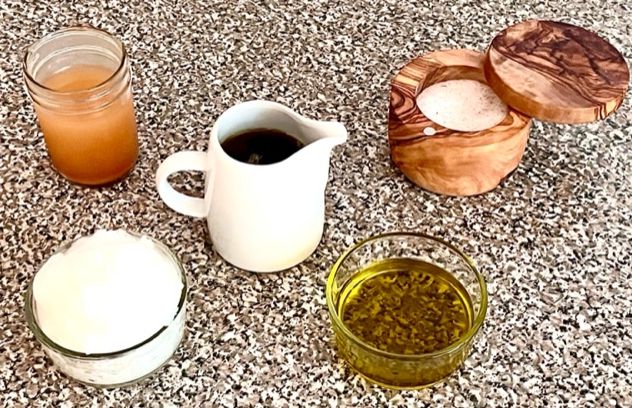Take Back Your Health (Part 2): From Victim to Agent
In Part 1 of this series, we established that health is a complex, evolving, and potentially disintegrating concept–or is it? Are health and wellness the absence of infirmity and disease, or are they the ability to manage chronic illness and disability while still maintaining the highest quality of life possible? The answer is probably somewhere in between, but I believe that an individual’s sense of agency has the ability to make all the difference between one extreme or the other.
medical advice disclaimer: This website does not provide medical advice and is intended for informational purposes only. Any statements or claims about the possible health benefits conferred by any foods or supplements have not been evaluated by the Food & Drug Administration (FDA) and are not intended to diagnose, treat, prevent or cure any disease.
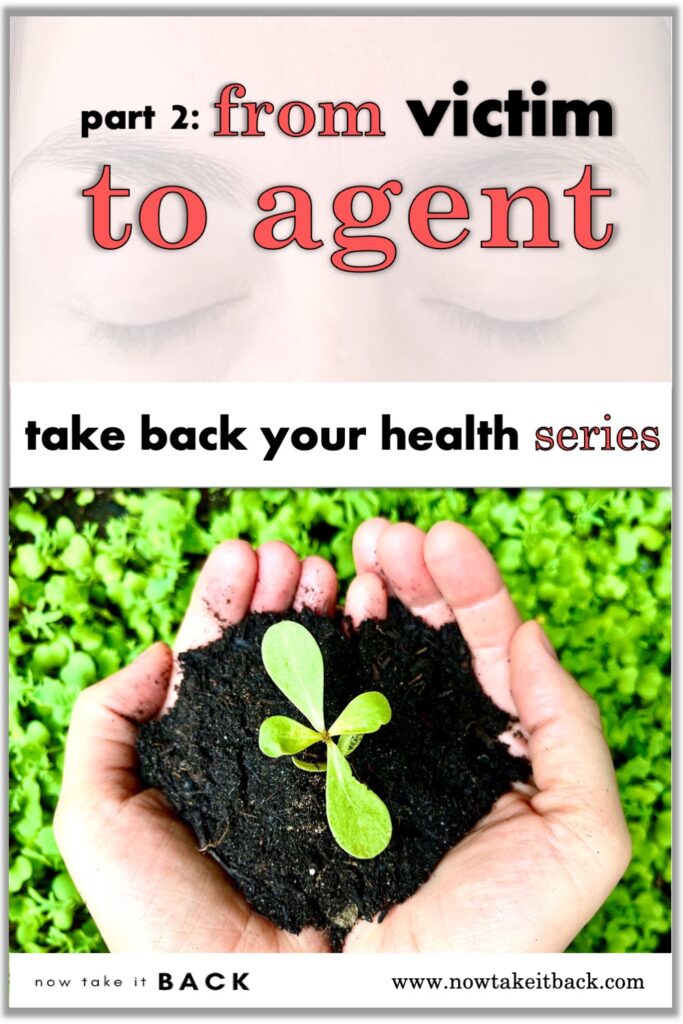
why agency?
From a philosophical perspective, agency is the capacity to act, and, through that action, to shape one’s environment. We are conditioned by our modern world to place certain matters regarding our lives into the hands of acknowledged experts; this is the “responsible” thing to do, after all. However, it can also be a way of abdicating both responsibility and accountability for our bodies, our lives, and our children.
A sense of agency grants us the ability to feel like what we do matters–like it has real implications on the people, places, and things in our environment. Agency is thus intimately connected to free will; our freedom to make choices that shape our lives for better or worse is our agency.
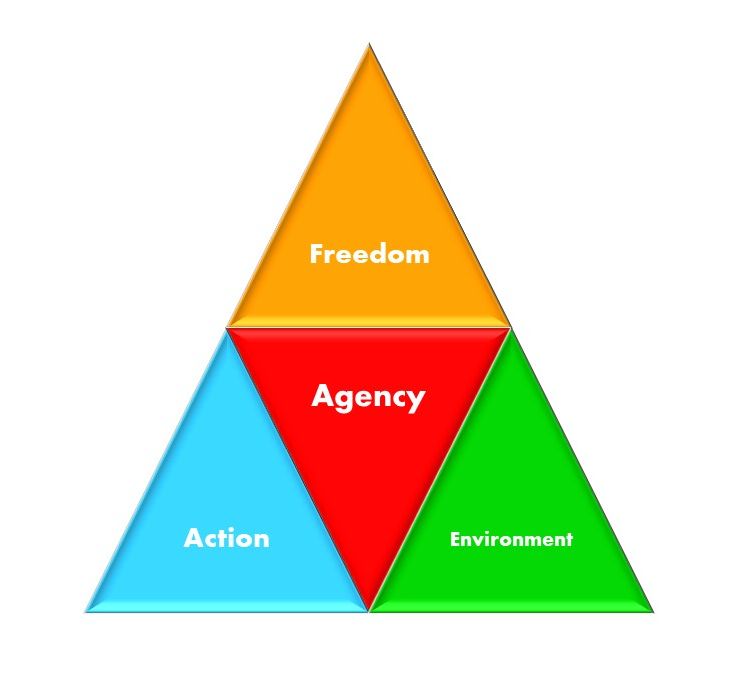
We can lose our agency in two primary ways:
- we can surrender it, or
- it can be taken from us
We live in a world in which our institutions make surrendering our agency seem like the obvious thing to do. And for those rare moments when it doesn’t seem obvious and we instead dare to ask the question why, a law is cited or a boundary is drawn that effectively takes our agency from us.
For those of us that are criminals, serial killers, and sociopaths, this is a very good thing. For those of us that are just parents, losing our agency has the potential to devastate our lives and the lives of our children.
taking back agency
The reality is that Americans are blessed to live in a country where personal agency is more protected than we realize. We have certain inviolable rights that are upheld in our laws, and, as long as we are not deluded into believing that we have to place our wellbeing or the wellbeing of our children into the hands of “experts,” we simply have to stand up and act in order to regain our agency.
Each human person has a fundamental right to health, whether or not that right is constitutionally protected. When we can find a way to self-manage and/or ameliorate our own health conditions, we regain a sense of agency in our lives. By contrast, when our health conditions are measured, monitored, or defined by others, our sense of agency diminishes.
Agency is empowerment. Taking back agency simply means taking action to improve your situation. Agency is turning yourself from victim into protagonist. Taking back your agency means you are no longer sitting on the sideline of your life while other people make decisions about it.
Taking back your agency requires first and foremost a shift in your mindset from passive to active. When you are passive, it’s easy to feel like things are happening to you. When you are active, you shift to feeling like you are making things happen that you have chosen. The shift from passive to active can make all the difference in how you approach your life.

becoming an active agent
How do you change from feeling like a passive victim into an active agent? Here are 5 steps towards shaping your mindset.
1. inform
Identify the problem you are struggling with most (weight, disease, infertility, breastfeeding, etc.) and educate yourself about it. Make use of the vast treasury of knowledge that is at your fingertips through books, courses, and Google. When you inform yourself about a topic, you equip yourself to make a decision about that topic.
2. decide
Make an informed decision about how you are going to solve your problem. Do not wait for someone else to make the decision for you; that is passive. Instead, be active, and decide to act in order to change your life.
3. act
You have informed yourself about your problem; you have decided what solution is likely to work best for you; now is the time to take responsibility for your life and act to change it. Your actions will teach you what works for you, what you believe, and what is worth your commitment.
4. commit
Informed decisions guide our actions, but not every action provides a solution. Troubleshoot your actions until you find something that makes progress. Continue to build on these actions until your problem is approaching resolution, then commit to the principles behind your actions. Commit yourself to the change you have enacted, and continue to educate yourself. This will keep you on an upward trajectory and prevent you from backsliding into the same problem.
5. educate
Informed decisions guide our actions towards commitment to real change. Real change means enduring change, and the best way to guarantee enduring change is to continue to educate yourself, your spouse, and your children. The people that you live with every day deeply influence your thoughts and actions. Unless education guides enduring change, commitment is likely to fade and old problems to return.
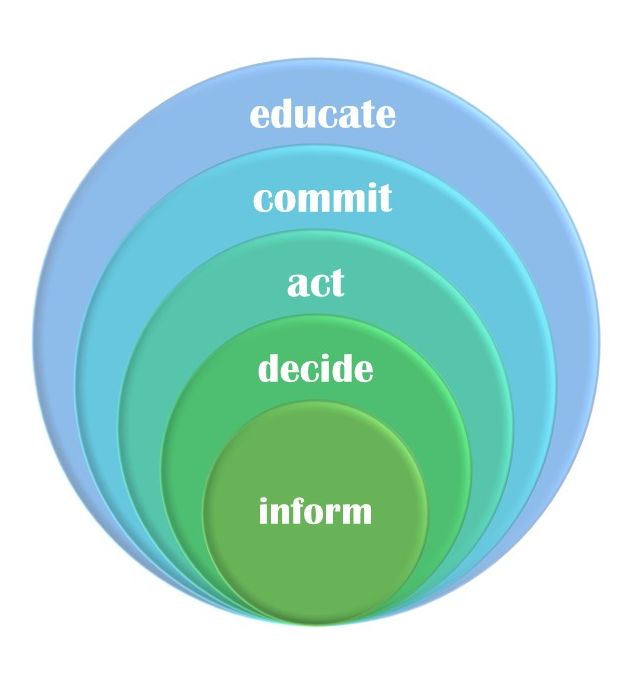
To become an active agent, inform yourself, make your decision based on your information, then act on your informed decision. Continue to act until you identify principles worth your commitment. Once committed, educate yourself and your family to remain faithful to your commitment. Each of these steps requires action or activity, which will prevent you from defaulting into a passive/victim mindset.
from victim to agent: my story
Born in 1986, I was a sickly enough child that I grew up believing I was just one of those people who had unspecified poor health. Feeling frustrated, miserable, and singled out, I plagued the offices of specialists for decades, desperate for a diagnosis.
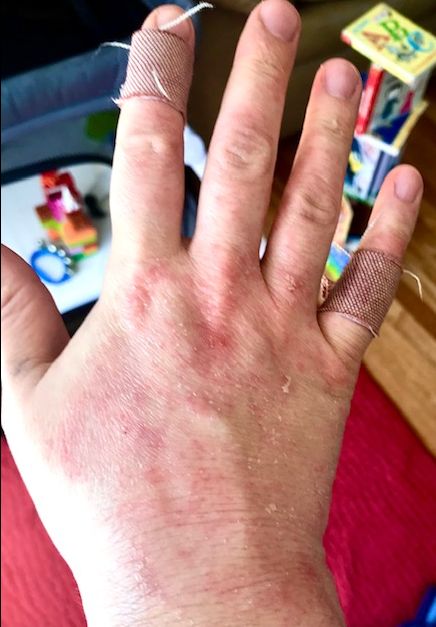
My symptoms included severe eczema from childhood and chronic yeast infections, urinary tract infections, and severe menstrual cramping beginning in adolescence. At age 16, I contracted inactive tuberculosis on a return flight from France and took a horse-pill-sized antibiotic daily for 9 months. After that, I came down with strep at least twice a year and was bedridden by mononucleosis for several months.
By my mid-20s, I had developed chronic bloody noses, allergies, faintness, dizziness, heart arrhythmia, stomach convulsions, diarrhea, constipation, swelling, weight gain, insomnia, depression, exhaustion, adrenal fatigue, and then, crushingly, unexplained infertility.
taking back my fertility
Because I wanted to be a mother more than anything else, I decided to implement some basic dietary and lifestyle changes in hopes that I could naturally become pregnant. At age 29, I started taking hormone-balancing supplements, ate more fruits and vegetables, began taking walks, grew a garden, and got plenty of fresh air and sunlight instead of gorging on Netflix and sugar. By the end of a year of this, I was pregnant with my first daughter.

At 6′ tall, I reached 253 lbs while pregnant, and dropped to about 230 lbs postpartum. I still struggled with the same symptoms, especially the severe eczema and stomach pain, just not as frequently. I finally got to a breaking point when my first daughter was 9 months old.
sick of being sick
I was lying in bed nursing her on New Year’s Eve, utterly miserable because my marriage was falling apart, and my stomach was in so much pain that all I could do was lie on my side, crying into a dark room. I remember thinking that if human life only increases in pain and suffering with age, then I didn’t want to age anymore; I simply wanted to end it now.
Then I looked into the angelic face of my daughter, sleeping peacefully at my breast, tiny mouth pulling in occasional flutters, and felt absolute horror that I could even think of leaving her. I decided in that moment to take back my health–for her.
taking back my health
Over the next few years, I tried multiple diets: paleo, keto, carnivore, juicing, vegetarian, GAPS (gut-and-psychology-syndrome), and an eczema-healing diet. I did juice fasts, bone broth fasts, intermittent fasting, home colonics, colon cleanses, heavy metal cleanses, liver cleanses, and parasite cleanses.




I went on long walks and bike rides, spent more and more time outdoors and in the sunlight, and largely eliminated my sugar and alcohol consumption. I taught myself how to do most of my own food processing and how to ferment foods, including making my own yogurt, sauerkraut, kombucha, and sourdough. I lost 50 lbs, resolved many of my symptoms, and healed my eczema.


things fall apart
During this same period of time, my life fell apart. My marriage ended while I was pregnant with my second daughter. Sixteen days after turning 2 years old, my first daughter died very suddenly of complications arising from pneumonia. One month later, I gave birth to my second daughter. At 9 months of age, my second daughter was diagnosed with a one-in-a-million genetic disorder. I was told by NIH physicians that there was no connection between my first daughter’s death and my second daughter’s disorder.
For more than 3 years, all I could do was process my grief and trauma, navigate my second daughter’s diagnosis, and attempt to optimize the mental and physical health of us both. Because I was so desperate not to lose her, I threw all of my energy into learning what I could about eye and kidney health, finding resources for visually-impaired children, raising money for a service dog, attending weekly physical, visual, and feeding therapies, attending my own grief therapy, and healing my eczema so I could focus more on parenting.
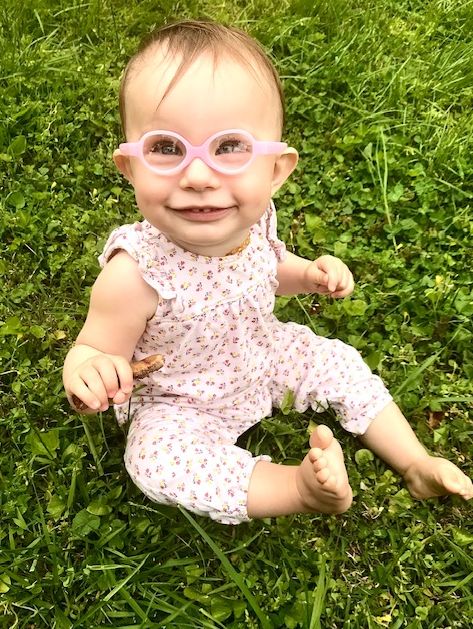

Because of the technological interventions involved in trying to save the life of my first daughter and the constant doctor’s visits, weekly therapies, and frequent hospital trips that colored the first few years of my second daughter’s life, I became very familiar with our modern medical system. Over time, I learned how to ask questions, refuse unnecessary procedures and medications, challenge doctors or practitioners when necessary, and advocate for my visually-impaired and developmentally-delayed toddler at every turn.
I became–in short–absolutely obsessed with informed consent and patient advocacy.
my mission to take it back
It is only in the last 18 months that I have begun a new life, with my incredible husband, new stepson, and a third, vibrantly healthy, newborn daughter. But the experiences of the past 5 years still define me more than anything else ever has. I don’t pretend to have all the answers; in fact, the physicians I respect the most (and who tend to have the most credentials) all come to a point where they freely acknowledge the limitations of their expertise–where they tell me that they just don’t know; science doesn’t know, and I just have to find a way to give it over to something bigger.
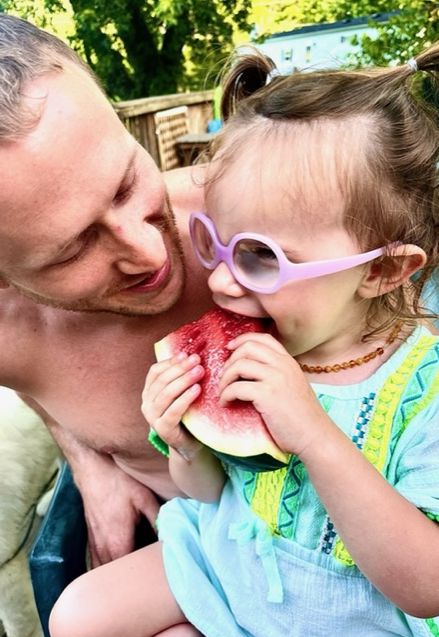
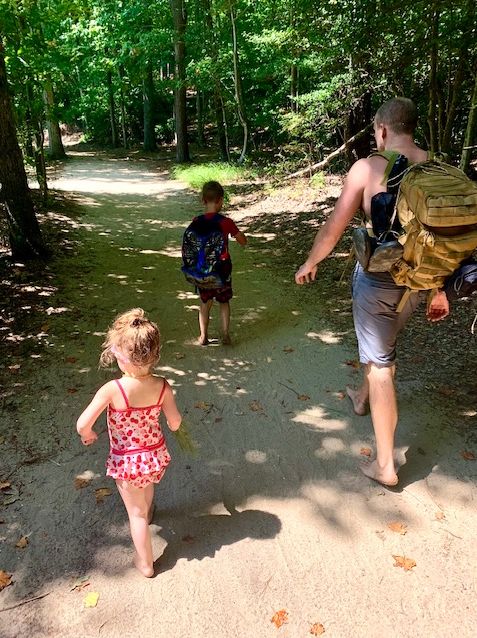
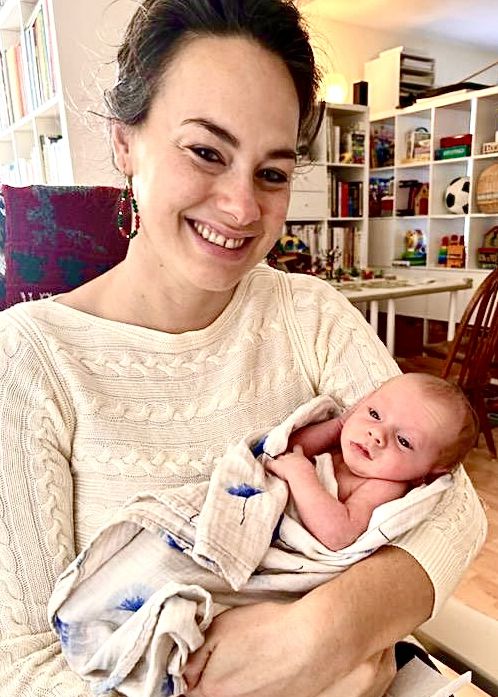
It’s probably obvious by now that I have a lot of trouble surrendering to the unknown. But that’s exactly what I’ve had to do as a mom of a child in heaven and a child on earth who was born with vital organs that don’t work the way they should. Some things are out of my control, and I strive every day to accept this and to be grateful for what I have.
But it also makes me more determined to control the things I can–to inform and educate myself for my family’s sake, so that I can optimize the time we do have together, however long or short that may be.
where to begin?
If the first step in taking back agency is to inform ourselves, how do we go about that in the age of information? How do we distinguish between “information” and “misinformation”? How do we determine who to listen to when everyone has a spotlight, an opinion, and a solution (for a price)? How can we–in short–know anything?
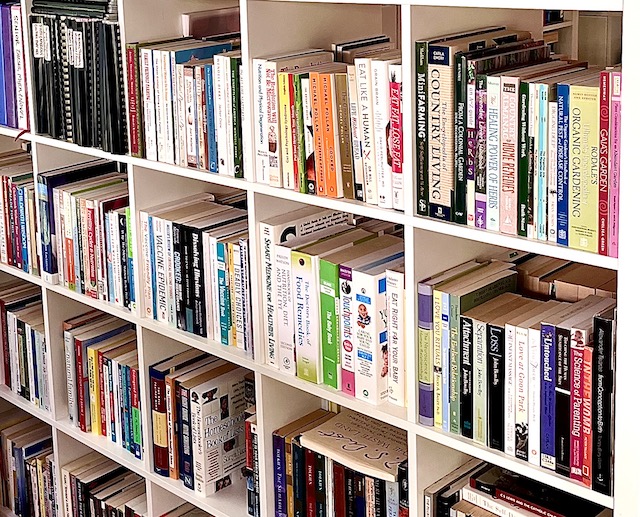
epistemology
Epistemology is the ancient study of knowledge–what does it mean to know and what constitutes knowledge? How can we truly know anything? This eternal question is almost more critical in the age of information (and “mis-information”) than it ever has been before. It feels nearly impossible to gauge truth and reality without aligning oneself with religious, political, or secular ideology.
At times, it can feel like we’re driving down a road in deep fog, and we can’t see where we’re going; all we can see is the lines on either side keeping us in the road. For me, these guiding lines are natural law and evolutionary biology.
natural law
Such law is the ultimate source and established limit for all of man’s laws and is intended to protect each of these natural rights for all of mankind . . . an immutable code of law, sanctioned by the Creator of man’s rights, and designed to promote, preserve, and protect him and his fellows in the enjoyment of their rights . . . such natural law, revealed to man through his reason, was capable of being understood by both the plowman and the professor.
National Center for Constitutional Studies
Natural law or “higher law” is a moral system fundamentally built into human existence by virtue of our capacity for reason. The modern legal system of the United States is based on natural law; it is the philosophical source of both the Declaration of Independence and the Constitution. It grants us a basic, intuitive, and mostly universal sense of ethics.
evolutionary biology
Evolutionary biology is a subdiscipline of the biological sciences concerned with the origin of life and the diversification and adaptation of life forms over time.
Nature
Evolutionary biology is a fusion between archaeology and biology, history and science. It constitutes our best guesses about how life evolved to its current forms over millions of years. It is among the most reliable of our sciences because it is studying the past, rather than experimenting with the present. Evolutionary biology helps provide insight about the food and environments that developed our brains and bodies over thousands of years.
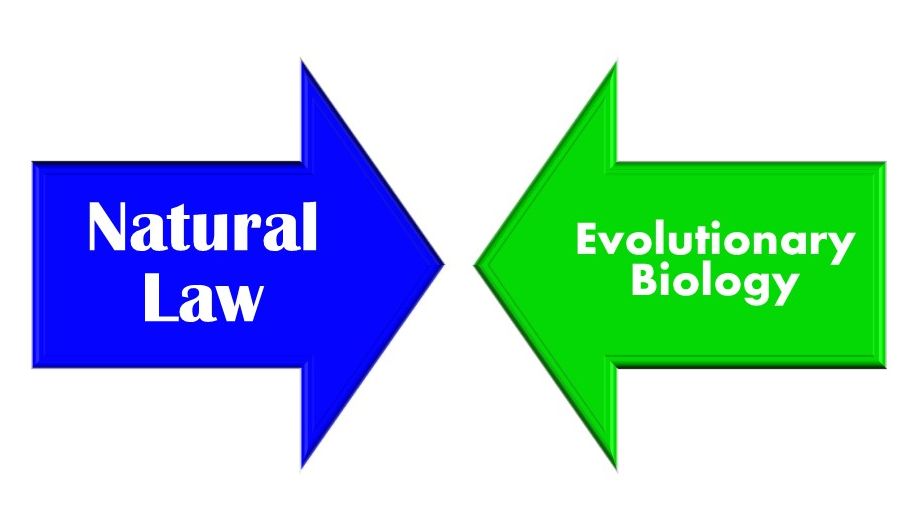
“knowing” in today’s world
As parents, it can be a constant challenge to know where to begin or who to trust. Time and research has taught me to begin with natural law and evolutionary biology because many of their principles feel intuitively correct and seem evident in many aspects of my life. Despite this, I fully admit that at the end of the day, all I’m really doing is guessing (and hoping) that I’m following the right principles.
parenting as educated guesswork
All knowledge is based on a synthesis of reason and objective reality. Even natural law and evolutionary biology are just examples of human reason navigating the perceivable world. Ultimately, all of our thoughts and actions are based on a reasonable guess regarding the nature of reality.
In other words, there exists no concrete way to know anything at all. We are always using our reason to make an educated guess, then basing our actions upon that guess. The rest is very literally faith–we are choosing to believe that we have done the most correct thing given the circumstances and resources at hand.
At first glance, this can be a depressing concept. But upon reflection, it can also be liberating–especially from the guilt that seems to plague every single parent, mother or father. Sometimes parenting can feel like a Catch-22–like you’re damned if you do and damned if you don’t.
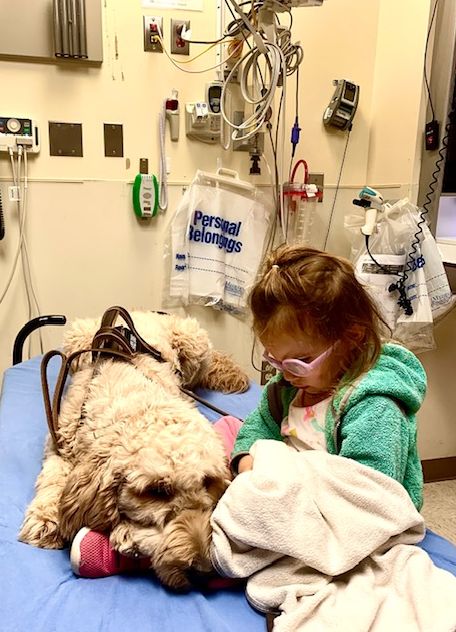
Especially for those who are parenting children with complex medical conditions, it can feel like no matter what choice you make, it will be the wrong one.
I try to comfort myself by believing that every choice I’ve made, right or wrong, was–at best–an educated guess. We are fortunate enough to live at a time in the world where millions of years of history and human experience are available for us to draw from at the mere touch of a finger. This can be overwhelming, or this can be empowering. The more we educate ourselves, the better our guesses/choices are likely to become.
who to trust?
No one has all the answers, but, at this point in history, we are standing on the shoulders of giants. Many have come before us who have discovered and accomplished amazing things, and we can learn from them. Some of them are true geniuses, and some of them are true experts. Science has come a long way in the past 500 years and is well on its way to being globally deified. This is part of the problem.
science as the new religion
Not everyone who wears a white coat is an expert. Not every scientist has all the answers. But our culture’s tendency to regard science as religion inclines us to submit to the higher wisdom of the medical world, even when its ethics are compromised by conflicts of interest. We are so desperate as a culture to regain our health that we jump at the opportunity to take the next pill, injection, or surgery that is cleverly marketed to solve our problems.

Because people need health to have lives, we have attached monetary value to different aspects of health. Things that used to be free and ubiquitous (sunlight, fresh air, access to clean water and nutritious food, the ability and knowledge of how to grow a garden or raise animals for food) are now dependent upon circumstance, environment, accessibility, and affordability. Perhaps more concerning is the fact that we now rely on science to create synthetic (and costly) versions of sunlight, air, water, food, or medicine that we believe to be superior.
In some ways, health is more sought after and more complex than it has ever been before. And because of this desirability and this complexity, it has become a commodity that we will commit money, time, and energy to possess, leaving us particularly vulnerable to a marketing phenomenon that has been around for some 1800 years.
a brief warning against gnosticism
Gnosticism was a religious movement begun in the first centuries after the death of Jesus Christ that promised gnosis or “secret knowledge” about the nature of God, the universe, and salvation. Gnostics promoted a “redeemer” who would confer this secret knowledge to the new believer, thereby enacting redemption.
Throughout history, promising “secret knowledge” as the solution to a particular problem has become a psychologically powerful–and almost ridiculously effective–sales tactic. We see it nearly everywhere in today’s world from recipes with a “secret ingredient” to articles entitled “7 Secrets to… [fill in the blank].” The lure of being a part of the in-crowd, of belonging to the people who have all the answers, or of finally arriving at a solution is so evolutionarily strong that most of us cannot resist it.
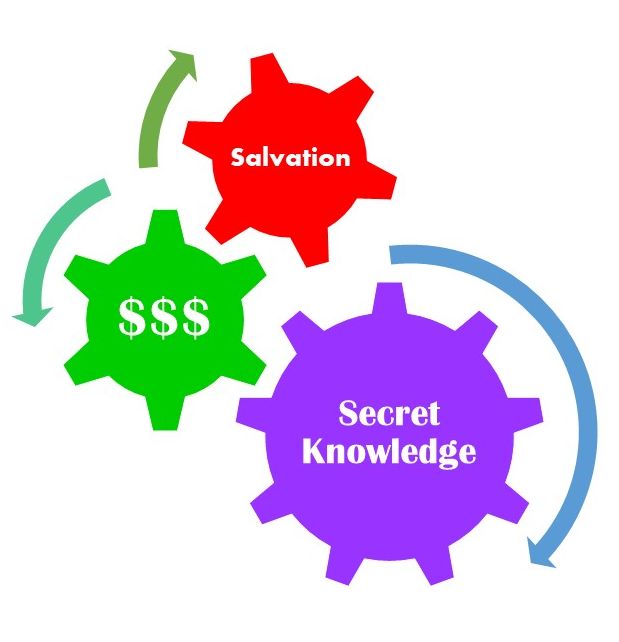
So we keep falling for it. Again and again and again. We keep convincing ourselves that this time it will be different; this $35.00 will be worth every penny; this person really, truly, actually has the one-stop solution to our problem.
But every business is predicated on offering a solution to a problem. Finding solutions, after all, is a major part of what makes us human. But solutions can lead to previously nonexistent problems, multiple problems, or more complex problems.
The gritty reality is that there is no one, final solution, answer, or destination that can solve all our problems, heal all our wounds, or satisfy all our desires. Human life is difficult and painful. All we can do is our best with the resources we currently have in front of us. Some resources will be worth the money. Many aren’t.
At the end of the day, it’s healthier, mentally and physically, for us to stop believing in the fairy-tale of ultimate solutions, and to stop falling for the marketing tactic of “secret knowledge for the low price of $___.” Nothing about life is easy, and because life is impossible to live without health, nothing about health is easy either.
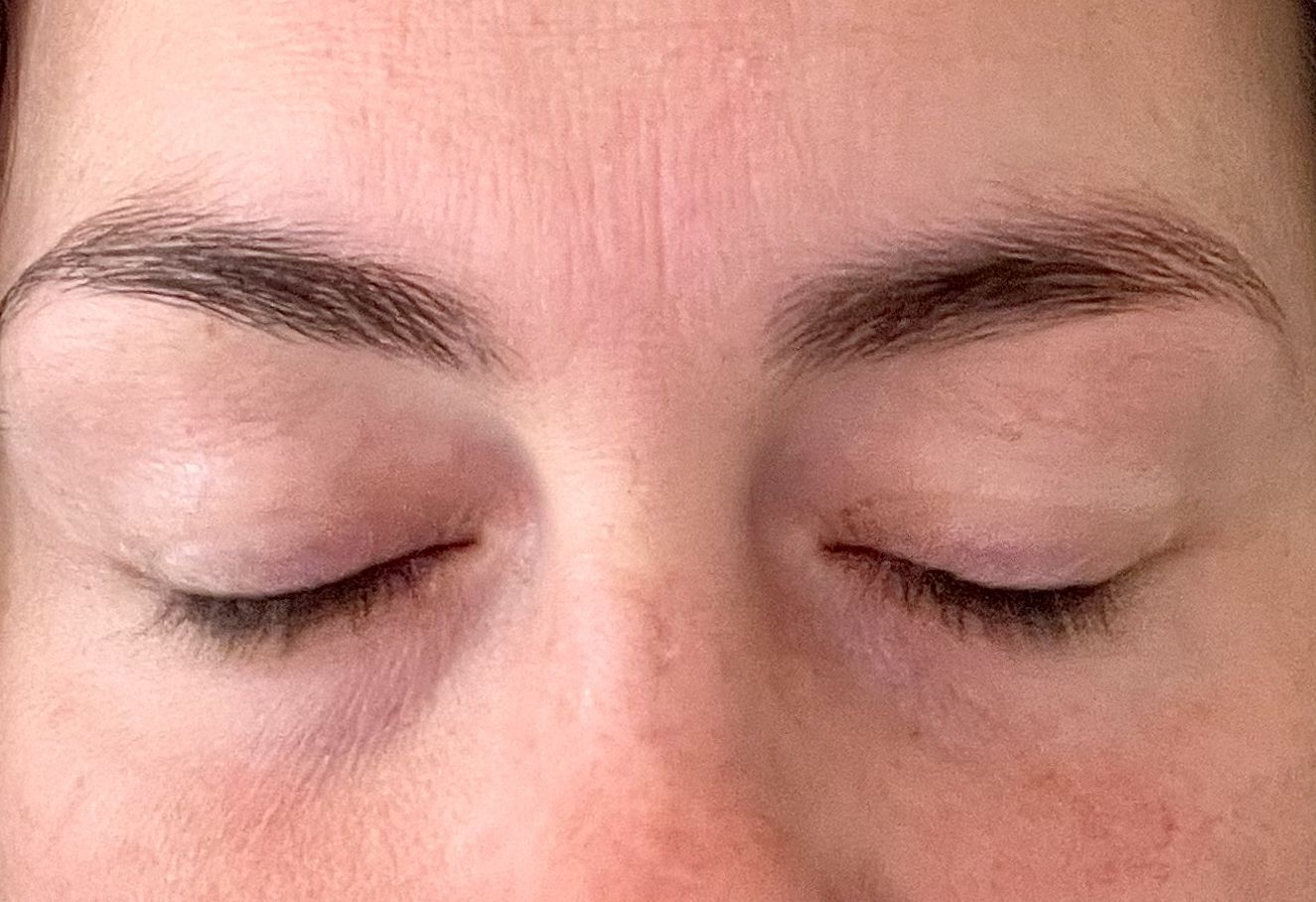
taking back agency requires learning to trust yourself over and above trusting authority
learning to trust yourself
If our government isn’t set up to protect our health from corporate interests and science can be bought and paid for, then what authority can we trust? If everyone is trying to sell us “secret” solutions to our problems, how can we trust that they will continue to care about us after we spend our money?
I am the one thing in life I can control.
Aaron Burr, Hamilton
In the same way that a parent is an expert on his or her particular child by virtue of spending endless hours watching and interacting with that child, you are the expert on your health because you live inside your body and spend every single minute with it. You know more than you think, and you can educate yourself about what you don’t know.
Chronic disease develops slowly and so does its resolution. You can take back your agency and your health, but it won’t happen overnight. For most of us, the journey will involve 1 step forward and 2 steps back. For some, it will involve a 1/2 step forward and 3 steps back. All that matters is that you keep moving forward.
If you can’t fly, then run;
Martin luther king, Jr.
if you can’t run, then walk;
if you can’t walk, then crawl,
but whatever you do,
you have to keep moving forward.
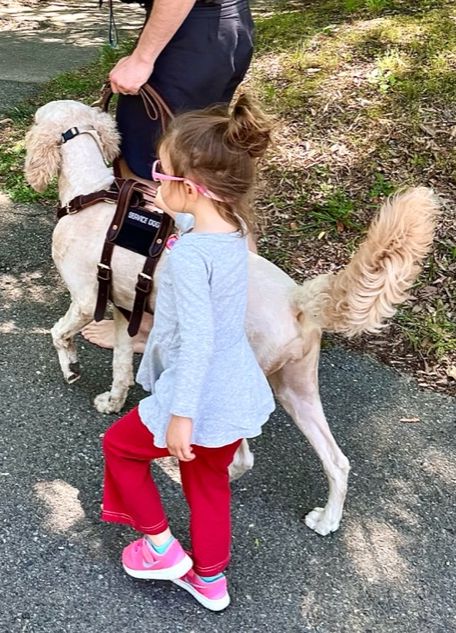
how to move forward
In Part 1 of this series, we explored what health is and which factors are driving the global burden of disease. In Part 2, we explored why agency matters, where to begin, and who to trust. All that remains is how.
Nothing about health is easy, but there is one crucial aspect of health that you do every day–multiple times a day–that is very much within your control, and that can bring you back to the beginning of what first made you human. After all, you are what you eat.
Read the third part in this series, Take Back Your Health (Part 3): Food as Medicine, to explore how to take control of your life through food.
take my free 5-day challenge
& instantly access:
